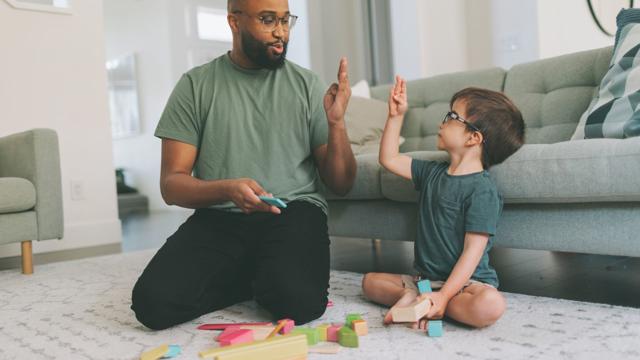We recognise that across Speke and Garston, we have a diverse community around us and it’s so important that we make a collective effort to communicate clearly with each other.
This week we’re marking World Deaf Day to raise awareness about the different levels of deafness and how we can further support you and your families.
We spoke to Kelly in our Neighbourhoods Team who is a trained British Sign Language (BSL) Interpreter about her reasons for learning the language and how she uses these skills to support deaf tenants and those with hearing loss.
I took the Level 3 British Sign Language course back in 2018 to be able to communicate with a family who are SLH tenants. Five family members are deaf, and they use sign language as well as lip reading to communicate.
It has made me realise how important it is to have someone within the organisation they can relate to when they get in touch or need to speak to someone. If they didn’t have anyone they could communicate with in sign language, they would be lost.
Currently, I’m supporting two families who prefer to contact me directly by text message. I keep in touch by text message to arrange visits and for them to visit us in reception. The families visit the office as they like to speak face-to-face, rather than via text message all the time.
We’ve supported deaf tenants and helped to get them on track. They didn’t have a doorbell, but we’ve provided them with one that flashes, so they can see when someone is at the door. We’ve also given another tenant a pager that she wears, and it vibrates to tell her there’s someone at the door. These are little things that make a difference, and we need to introduce more ways to ensure deaf and hard of hearing tenants feel included.
By having more colleagues who know basic sign language and offer the BSL course to staff across the board. Learning the basics will mean we are trained and prepared when we visit a deaf or hard of hearing person in their home. It may stop the person from feeling isolated if there’s someone in front of them who can help.
Having those skills also removes the need to use a pen and paper or text message to communicate. Trying to lip read can also be difficult and often misinterpreted.

